
If you’re an apartment marketer, you’re well aware of the importance of SEO for bringing people to your website and generating leads. In fact, organic search drives over 50% of traffic to B2C websites.
But SEO has changed significantly over the past decade. Some of the tactics and “best practices” that were popular back in 2009 are ineffective today. With tons of changes to Google’s algorithm and the way consumers search, you need to be aware of what works and what doesn’t.
We’ve decluttered a lot of the noise around SEO and boiled it down to seven key principles every apartment marketer needs to know to be successful. If you can understand and master these seven best practices, you’ll have a much better chance of capturing new leads from search engines.
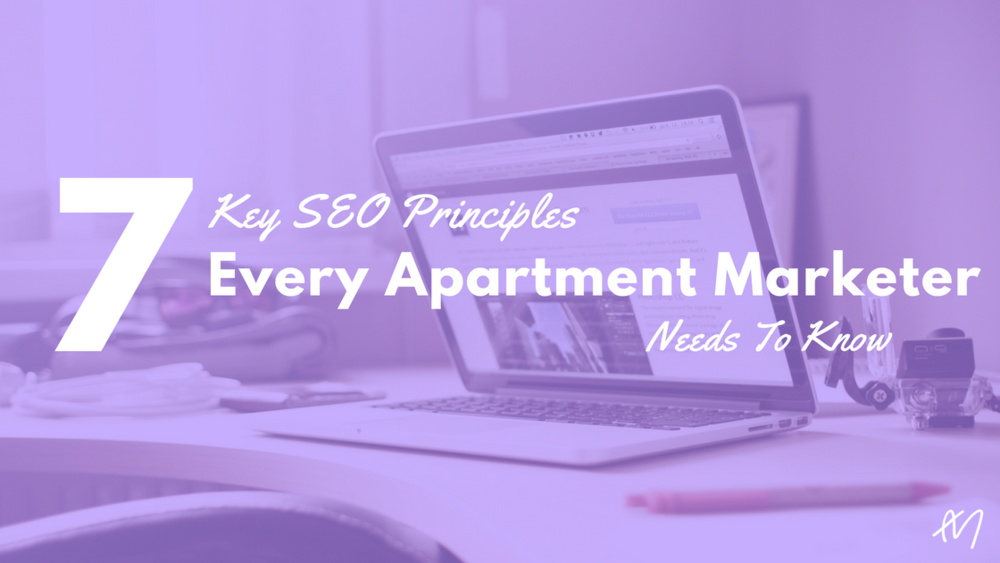
The days of limiting your target keywords to broad phrases like “luxury apartments Chicago” are over. While it’s still nice to have your eyes set on those shorter more competitive keywords, you’ll have a lot more success placing your focus on long tail keywords.
Fifty percent of search queries are four words or longer. That means consumers are becoming more specific with what they’re looking for. So instead of searching for “apartments Chicago,” they’re using queries like “cheap apartments north side Chicago.”
In order to adjust to this change, start optimizing your website around -searches. That could mean writing blog posts targeting long tail phrases or simply integrating them into your existing pages.
The beauty of long tail keywords is since they’re more targeted, they tend to convert better. The more specific people get with their searches, the further along they are in the buying process. They know exactly what they want and if your apartment community can provide it, it’s easier to convert them from a lead to a renter.
Google has made it no secret that they’re tailoring their search results towards mobile users, particularly for local searches. When Google announced they’d be devaluing sites that aren't mobile-friendly, businesses took steps to make sure their sites were responsive, but it was still second to desktop.
But now we’re at a point where you need to start thinking about the mobile experience first, not just as an afterthought. More consumers are searching from their phones and tablets than ever. And it’s helping businesses earn new customers. Google reported that local searches lead 50% of mobile visitors to visit stores within one day. Also, 18% of local mobile searches lead to a sale within one day.
So how can you adjust?
When you create new pages or write blog posts, make mobile a priority. That could mean not including certain elements like huge interactive maps that won’t translate well on a smartphone, or making your apartment search features optimized for mobile.
Take a look at the mobile version of Gate Hudson’s Rolling Brook Village website. All of the apartment search features function perfectly on mobile devices so they’re not losing out on potential renters.
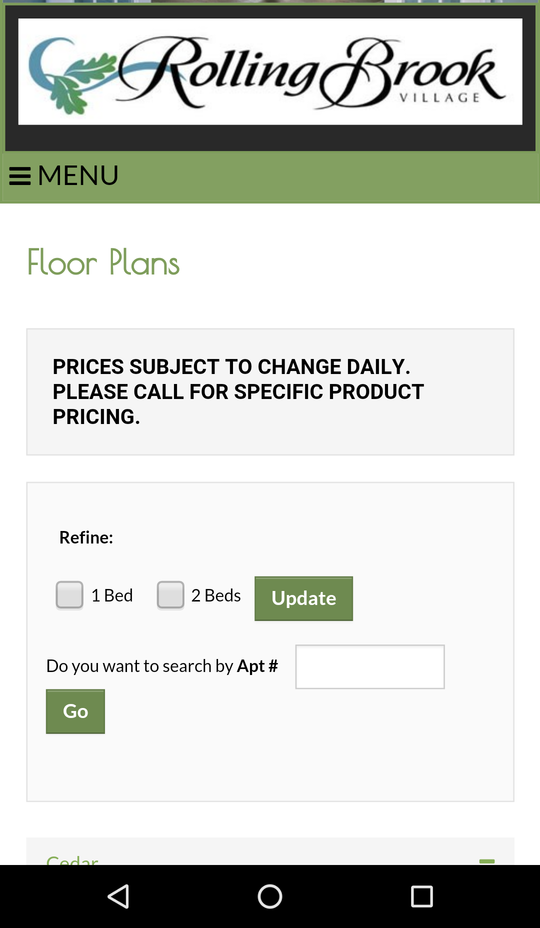
To put it simply—make sure every part of your website functions correctly on mobile devices.
We’re huge proponents of blogging for apartment communities. In fact, we help them do it better. Blogging is crucial for SEO today because it:
Also, blogging makes it easier to earn natural backlinks which is one of the most important ranking factor for Google along with content relevancy and content quality. According to Hubspot, businesses who blog receive 97% more links to their website.
And if you’re still not convinced, businesses that blog generate 67% more leads than those that don’t. You'll also see quicker results the more frequent you blog, which can help to ramp up your digital presence in less time, especially important for lease up communities that are new to the market and trying to build a strong presence as quickly as possible.
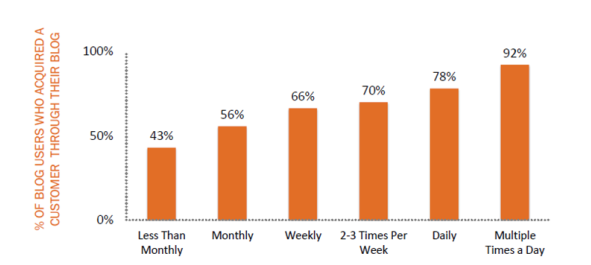
One of the keys to having a successful blog for your apartment community is consistency. Blogging once in a blue moon won’t do much. But if you can develop a regular cadence and post at least once a week, you’ll start seeing some real benefits.
If you need ideas for what to blog about, try these seven types of blog posts to attract apartment hunters.
This is an SEO technique that many apartment marketers aren’t aware of. An internal link is simply a link from one page on your site to another. This graphic from Backlinko gives an overview of the process.
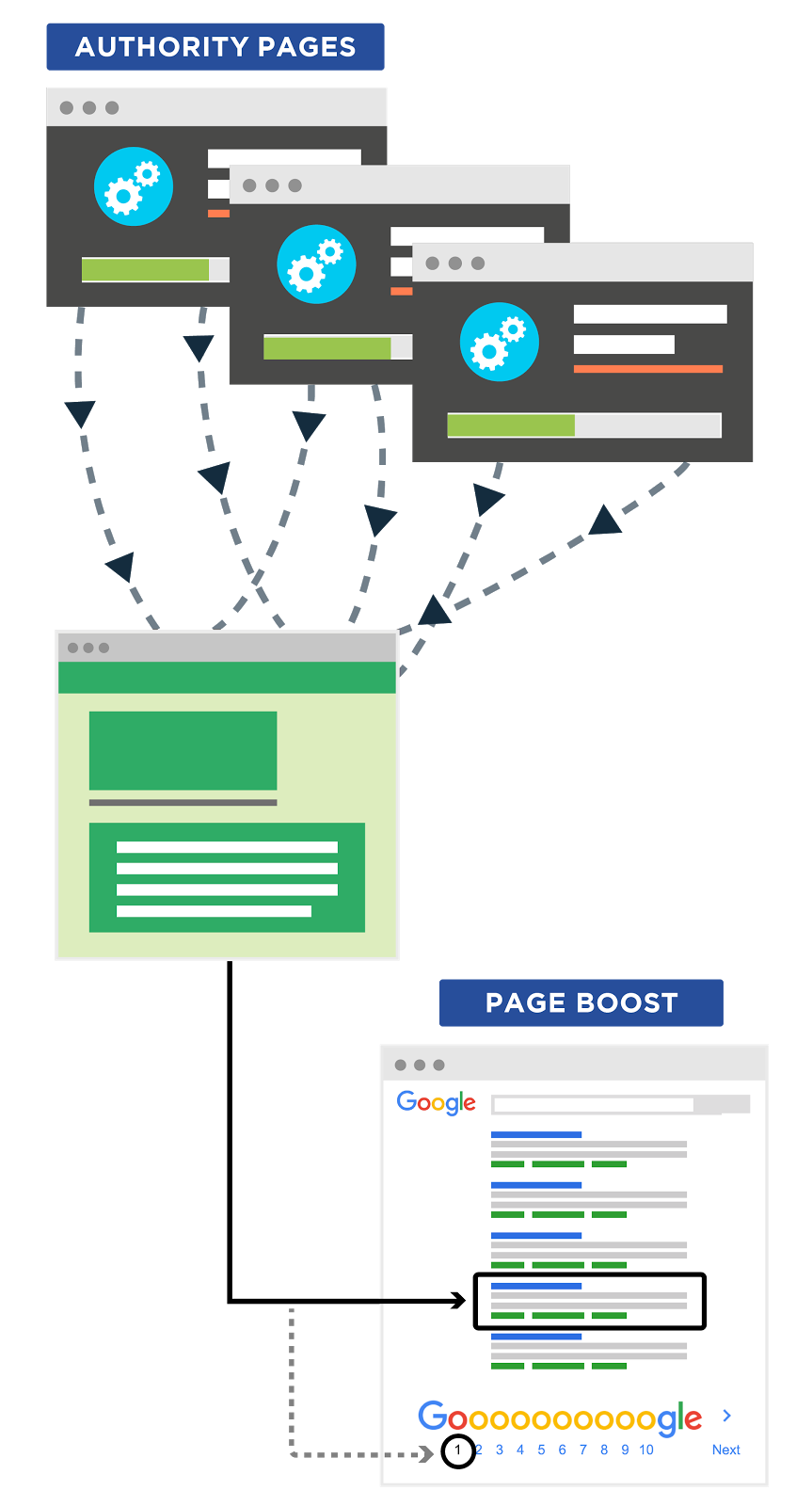
It may not seem like a huge deal but internal links are a very quick and easy way to improve your SEO and keep people on your site longer.
To help make your internal linking strategy more effective, follow these tips:
Since we know backlinks and content are the main pillars of SEO, it’s tempting to run out and look for fast ways to ramp up production. However, you have to be extremely cautious of sacrificing quality in order to pump out more articles or get more links pointing to your site.
Years ago a lot of businesses relied on shady blackhat SEO tactics to get as many backlinks pointing to their site as possible. They’d use article directories, forum profiles and blog comments that added little to no value just to get thousands of backlinks pointing to their site. Then after the Penguin algorithm launched, a lot of those sites saw big drops in their rankings.
The lesson here is quality beats quantity almost every time. Take the time to build genuine relationships with bloggers, influencers and online publications that will potentially link to you, and don’t rush to put out low-quality content. That way you don’t have to worry about being penalized or having your site devalued in search engines.
If you’re an apartment marketer with very little SEO experience, there’s a strong likelihood site structure wasn’t something you considered while developing your site or content. This is a big missed opportunity.
It’s best to have your site reviewed by an experienced SEO to ensure your site structure is optimized for search engines. However, the key is to have a logical hierarchy of pages.
You see, Google and search engines view your site as a series of folders and files. Your job as the webmaster is to make it easy for search bots to navigate through all the content on your site. It should be clear which pages are related.
As a basic rule of thumb, your pages shouldn’t be more than three clicks from your home page. Here’s an example of a basic site structure that illustrates this:
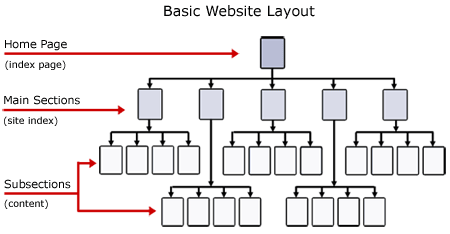
Part of the reason site structure is important is your URL format. Read through this post to find out how to structure your URLs correctly: How to Outrank Apartment Listing Sites & Get More Renters.
This is a big one, especially for apartment community sites that blog. Unless you tell Google otherwise, it will index all the pages on your site regardless if they provide value.
You only want search engines to pay attention to the pages on your site with helpful content. Anything else dilutes the equity of your other pages.
So you have two options. Either delete unnecessary pages or no-index them. No-indexing a page simply means you’re telling Google not to count it or display it in the search results.
Delete pages that are old and completely irrelevant like apartment listings for units that aren’t available anymore. No-index pages that are necessary for your site’s functionality but don’t need to be in search results. That typically means:
You can do a site command search to see all the pages on your site Google has indexed. Just do a Google search for:
Site:yourdomain.com
Here’s an example for an apartment community that also happens to blog.

Notice how these blog archive pages are showing up in Google, but they’re completely unnecessary. It would be a good idea to no-index them.
It’s a simple fix that can have a big impact. If your site is made with WordPress, you can no-index pages using a plugin like this one from Yoast. Otherwise, have your web developer go through an do it for you.
How many of these SEO Principles are you following? If the answer is none or only a couple, use this as an opportunity to make some changes.
These Stories on SEO

San Diego, CA
600 B St.
San Diego, CA 92101

Austin, TX
600 Congress Ave.
Austin TX 78701

Washington, DC
1875 Connecticut Ave NW
Washington, DC 20009
Copyright © 2024 AM Digital, LLC Terms of Service Privacy Policy
Street Address
City, ST 00000
Call us: 1-800-COMPANY
(800-000-0000)